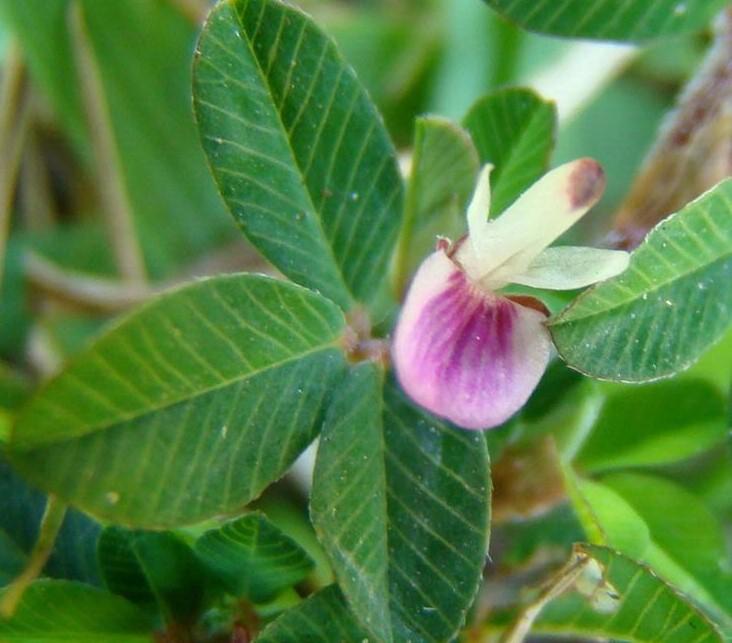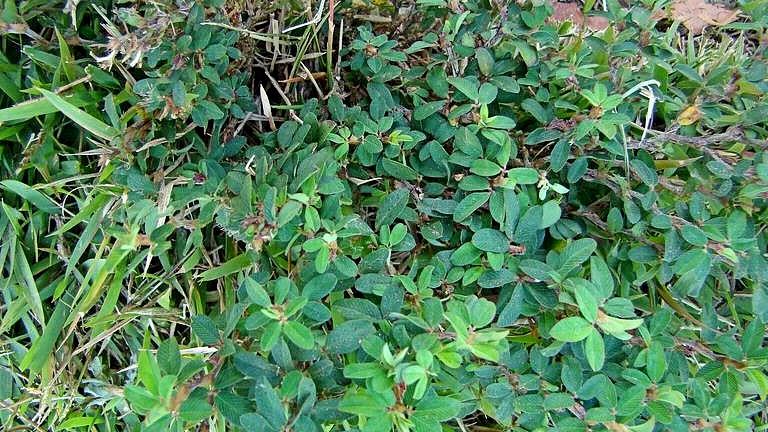General description
Common lespedeza, also known as Japanese clover, (Kummerowia striata, syn. Lespedeza striata) is prostrate summer annual that forms 15-18 inch patches or larger. The stems are wiry. It has dark green trifoliate (arranged in threes) leaves with three oblong, smooth leaflets. Leaflets have parallel veins approximately at 45-degree angles to a prominent mid-vein. Its leaves have smooth edges and a short spur at the tip of each leaflet. Flowers in late summer with small pink to purple, single flowers found in leaf axils on most of the nodes of the main stems. It grows very low to the ground and chokes out thin turf.

Photo: Rebekah D. Wallace, University of Georgia, Bugwood.org

Photo: James H. Miller & Ted Bodner, Southern Weed Science Society, Bugwood.org
Conditions that favor growth
Grows in areas of thin, under-fertilized turf in poor, dry soil.
Management in lawns
Lawn care practices
Maintain healthy, dense turf that can compete and prevent weed establishment. Increase the mowing height to 3-4 inches, test the soil for pH, and apply fertilizer according to UMD Extension recommendations.
Mechanical management
Hand pulling or using an appropriate weeding tool are the primary means of mechanical weed control in lawns. This is a viable option at the beginning of an infestation and on young weeds. Hand pulling when the soil is moist makes the task easier.
Manage Weeds Without Chemicals
Chemical treatment in lawns
If you choose this option, spot treat weeds with a liquid, selective, postemergent, broadleaf weed killer applied when weeds are actively growing. Look for a product with one or more of the following active ingredients:
2, 4-D, MCPP (mecoprop), Dicamba*, or Triclopyr.
*Do not spray herbicides containing dicamba over the root zone of trees and shrubs. Roots can absorb the product possibly causing plant damage. Refer to the product label for precautions.
